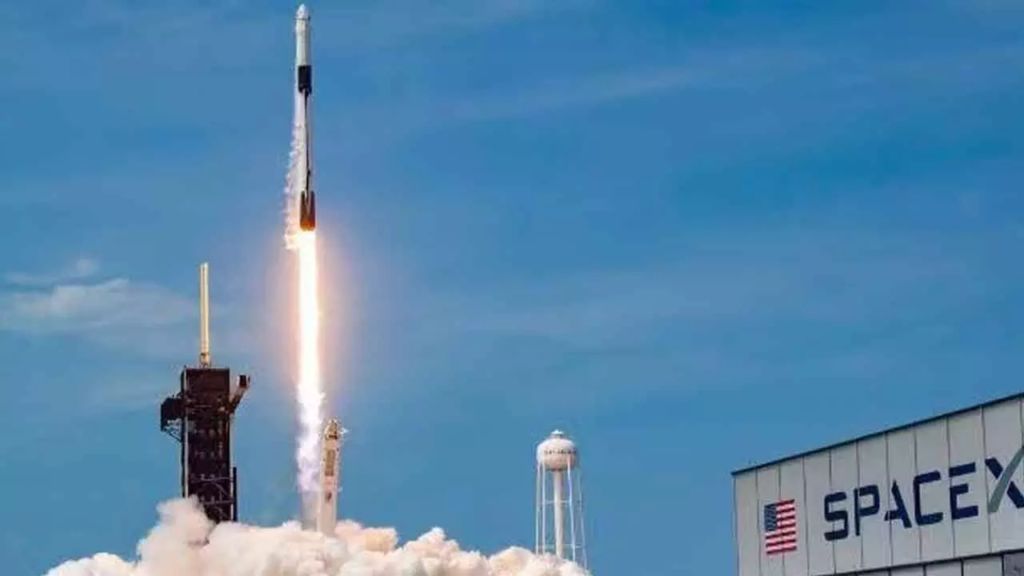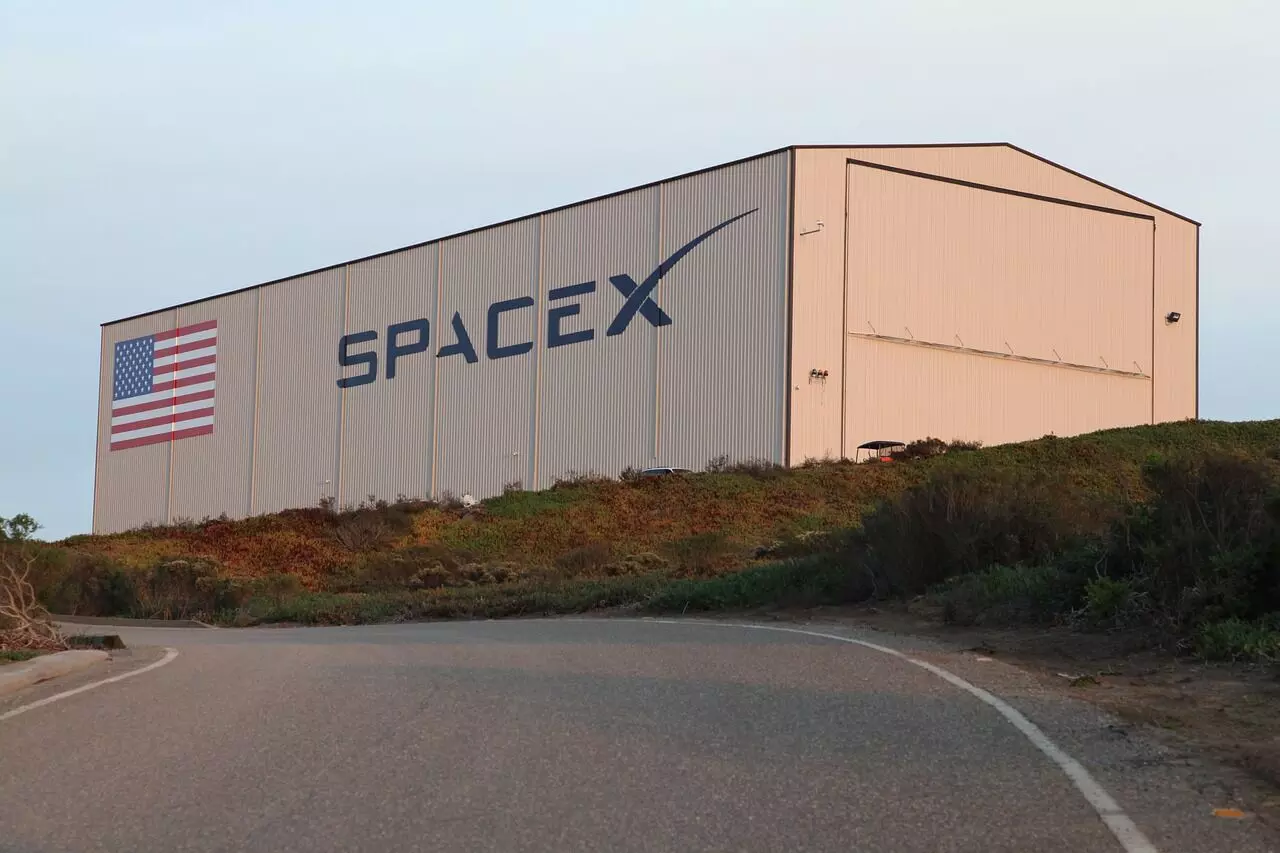Elon Musk’s SpaceX has secured a monumental $733 million contract with the U.S. Space Force, marking a significant victory in the aerospace industry.
The contract includes eight launches, contributing to the U.S. government’s national security objectives, and demonstrates SpaceX’s dominant role in modern space technology.
SpaceX’s Growing Influence in U.S. Space Missions
In recent years, SpaceX has cemented its position as a leading provider of launch services for governmental and commercial clients. This recent $733 million contract is another milestone in SpaceX’s journey of growth and influence in space exploration and defense-related missions.
The U.S. Space Force’s decision to award SpaceX this lucrative contract highlights the trust placed in the company’s cutting-edge technology and ability to deliver on high-stakes missions.
This contract covers eight launches, seven for the Space Development Agency (SDA) and one for the National Reconnaissance Office (NRO). These are highly strategic launches, expected to support various U.S. defense operations, including satellite deployment and space reconnaissance missions.
Read : I Won’t Eat Omelette for a Week: Elon Musk After SpaceX Launch Destroys Nine Bird Nests
What makes this win particularly noteworthy is that the contract is part of the National Security Space Launch (NSSL) program. This program is designed to encourage competition among launch service providers, ensuring the U.S. government has access to reliable and cost-effective space transportation services.
Read : SpaceX Catches Starship Rocket Booster with Robotic Arms: Watch
SpaceX’s Falcon 9 rocket will play a key role in fulfilling the contract, with all the launches expected to occur no earlier than 2026. This timeline aligns with the Space Force’s broader vision to expand its space capabilities over the coming decade.
SpaceX’s Falcon 9 is a reusable rocket that has demonstrated its reliability over numerous missions. Its ability to carry heavy payloads into various orbits makes it ideal for both commercial and governmental launches, positioning SpaceX as a go-to partner for high-profile missions.
The Role of the U.S. Space Force’s NSSL Program
The U.S. Space Force’s National Security Space Launch (NSSL) program is a key initiative aimed at maintaining and advancing America’s space dominance. The program was launched to ensure that the U.S. government has the necessary resources to deploy vital satellites and other space assets that support national security, scientific research, and intelligence operations.
The NSSL Phase 3 contracts have been split into two “lanes” — Lane 1 for less risky and near-Earth orbits, and Lane 2 for heavy-lift missions into more challenging orbits.
SpaceX’s recent win falls under Lane 1, which focuses on missions that require less complex orbital insertions but are still crucial for national security. This portion of the NSSL contract reflects the growing demand for near-Earth satellite constellations and the vital role they play in communication, navigation, and surveillance.
The program’s primary goal is to create competition among launch providers, fostering innovation while ensuring that missions are conducted at a reasonable cost.

Under the NSSL Phase 3 Lane 1 contract, SpaceX, United Launch Alliance (ULA), and Blue Origin were all chosen to compete for launches earlier this year. Despite Blue Origin not yet having reached orbit with its launch vehicles, it was selected to remain in the competitive pool, showing the U.S. government’s desire to have a diversified set of providers.
The NSSL’s Lane 1 has a total estimated value of $5.6 billion over five years, with the opportunity for new providers to join the competition on an annual basis. This ensures that even as the space industry evolves, newer companies with innovative solutions can potentially participate in future contracts.
For SpaceX, the NSSL program’s structure offers continued opportunities for growth. With a proven track record of reliability and technological advancement, SpaceX is well-positioned to win more contracts under the program.
However, the competitive landscape is expected to evolve, particularly as new entrants like Blue Origin and other emerging space companies become more operationally capable.
The Future of SpaceX and the Space Industry
SpaceX’s $733 million contract is not just a win for the company but also a sign of the increasingly competitive nature of the space industry. The rise of private companies like SpaceX, Blue Origin, and others has significantly altered the dynamics of space exploration, which was once dominated by government agencies like NASA.
Private companies have brought cost efficiencies, innovative technologies, and new business models to the table, making space missions more accessible and achievable.
SpaceX’s focus on reusable rockets has revolutionized the space industry. The Falcon 9’s ability to return to Earth after completing a mission allows for more frequent and affordable launches, reducing the costs associated with space travel.
This innovation has positioned SpaceX as a leader in the commercial spaceflight sector, allowing the company to outpace competitors both in the U.S. and internationally.

The U.S. Space Force’s partnership with SpaceX reflects a broader trend of governments increasingly relying on private companies for critical space infrastructure. As space becomes a more contested domain, with countries like China and Russia advancing their space capabilities, it is crucial for the U.S. to maintain its technological edge.
By contracting private companies like SpaceX, the U.S. government can ensure it has access to the latest advancements in launch technology and maintain its dominance in space.
The SpaceX win also highlights the importance of national security in space. As countries develop anti-satellite weapons and other capabilities that threaten space-based assets, securing reliable and advanced launch services is a priority for the U.S. Space Force.
The contract will allow SpaceX to deploy critical assets, including satellites, that contribute to the defense of U.S. interests both in space and on Earth.
Looking ahead, SpaceX’s role in the space industry is likely to continue expanding. The company has ambitious plans, including developing the Starship rocket, which is designed for deep space exploration and has the potential to revolutionize long-distance space travel.
Starship is expected to be capable of carrying both crew and cargo to the Moon, Mars, and beyond, and it may eventually play a role in future U.S. Space Force missions. Although the recent contract focuses on the Falcon 9, the potential for SpaceX to utilize Starship in defense-related missions in the future cannot be ruled out.
The next few years will be critical for the space industry as new technologies, providers, and geopolitical tensions shape the future of space exploration and defense. With contracts like this one, SpaceX has positioned itself as a key player in the U.S. government’s national security plans, ensuring that the company remains at the forefront of space innovation.
SpaceX’s $733 million contract with the U.S. Space Force is another significant achievement in the company’s already impressive portfolio. The contract is part of the broader National Security Space Launch (NSSL) program, which aims to foster competition among launch providers while ensuring that the U.S. government has access to reliable and cost-effective space transportation services.

SpaceX’s role in the program demonstrates its importance to U.S. national security and its growing influence in the space industry. With this contract, SpaceX will conduct eight launches, supporting both the Space Development Agency (SDA) and the National Reconnaissance Office (NRO).
These missions will enhance U.S. defense capabilities and contribute to the ongoing efforts to maintain American dominance in space. As the space industry continues to evolve, with new entrants and technologies emerging, SpaceX’s ability to adapt and innovate will ensure its place as a leader in the field.
The future of the space industry looks bright, with SpaceX at the forefront of the next wave of space exploration and defense. The U.S. Space Force’s trust in SpaceX reflects the company’s proven track record of success and its ability to deliver on critical missions.
As the world’s attention turns to space as the next frontier for both exploration and defense, SpaceX is poised to play a major role in shaping the future of space travel and national security.

